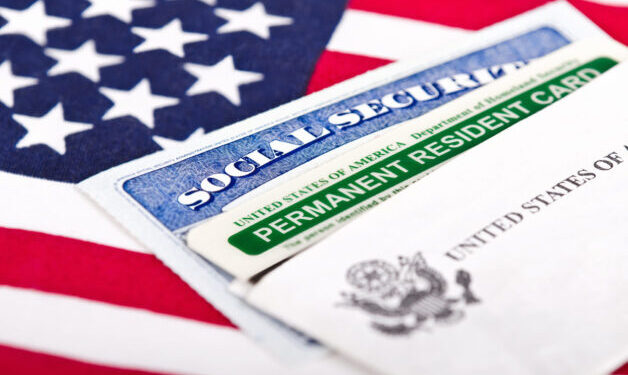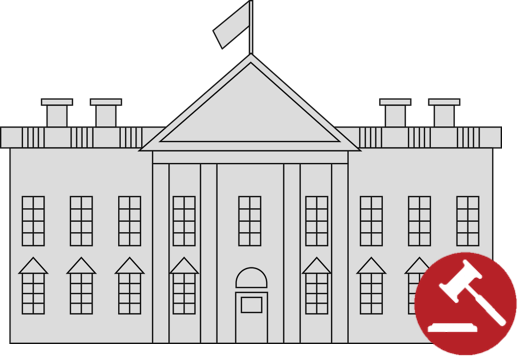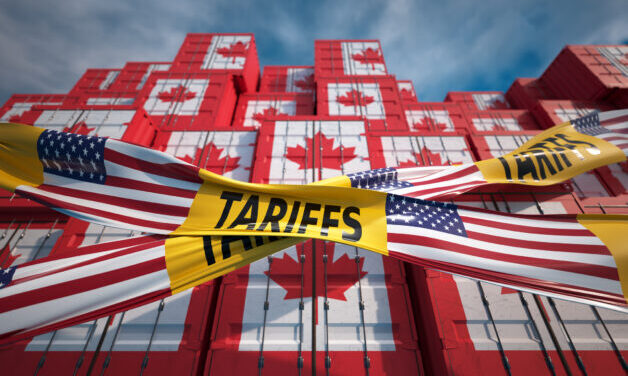At a Glance:
- The main takeaway: On July 4, 2025, the One Big Beautiful Bill was signed into law with changes to key provisions from the Tax Cuts and Jobs Act that will have a direct impact on individual U.S. taxpayers.
- Impact on individual taxpayers: Changes to several notable provisions, include the SALT cap, estate and gift tax exemption, child tax credit, and the deduction on qualified tips are set to impact millions of Americans.
- Next steps: A tax advisor can proactively monitor tax legislation developments and is prepared to help you navigate the potential changes.
The One Big Beautiful Bill (OBBB), also referred to as HR-1, was signed into law on July 4, 2025, and contains amendments to numerous provisions that will directly affect individual American taxpayers. Among these provisions are the permanent extension of rate cuts initially set to expire at the end of the year. Additionally, the bill expands the standard deduction and permanently eliminates the personal exemption.
Individuals residing in high-tax states will benefit from a temporary increase in the limitation on the deduction of state and local taxes, commonly known as the SALT cap. The new legislation permanently establishes the increased estate and gift tax exemption, along with other provisions outlined in this article.
Individual Income Tax Rates, Brackets, and Standard Deductions
When the Tax Cuts and Jobs Act (TCJA) was passed in 2017, several individual income tax provisions were modified and reworked. Taxpayers experienced adjusted tax rates and brackets, a nearly doubled standard deduction, and the elimination of the personal exemption. While these provisions were set to expire at the end of 2025, they have now been permanently enacted under OBBB. The tax brackets and rates will remain at 10%, 12%, 22%, 24%, 32%, 35%, and 37%, as established under the TCJA with inflation adjustments. Additionally, the 10%, 12%, and 22% brackets will receive an extra year of adjustment for inflation.
Without the passage of the bill, taxpayers who do not itemize would have seen their standard deduction revert to pre-TCJA amounts, which is nearly half of what taxpayers have seen for the past several years. While the deduction amounts under the OBBB have been slightly modified, they will remain very similar to TCJA amounts, with single filers seeing a deduction amount of $15,750, head of household filers seeing a deduction amount of $23,625, and married filing joint filers seeing a deduction amount of $31,500. Under the TJCA, taxpayers who did not itemize were temporarily able to deduct up to $300 ($600 for married filing jointly) of charitable contributions. HR-1 has reinstated this provision and increased the deduction amount to $1,000 ($2,000 for married filing jointly) for the taxable years beginning after December 31, 2025.
Another significant provision of the TCJA was the repeal of the personal exemption, which has now been made permanent. There is now a new temporary exemption of $6,000 available until December 31, 2028, for filers who are over the age of 65 (before the close of the tax year), with an AGI of less than $75,000 ($150,000 for married filing jointly). Taxpayers claiming this exemption will be required to include their social security number on their tax return.
Limitation on Individual Deductions for Certain States and Local Taxes (SALT Cap)
Under the new provision, the existing SALT cap deduction threshold will temporarily increase from $10,000 to $40,000 for most individual taxpayers with an annual adjustment increase by 1% beginning in the 2025 calendar year. The deduction cap will then revert back to $10,000 in 2030.
Income Threshold Exclusion
The $40,000 SALT cap is phased down for high-income taxpayers with a modified adjusted gross income above $500,000 in 2025, with an annual adjustment increased by 1% starting in the 2025 calendar year. For every dollar earned above the threshold, the SALT cap is reduced by 30%. However, the SALT cap limitation will not fall below $10,000, regardless of the level of income earned.
A proposal within the House bill to restrict the state and local tax deduction for certain Passthrough Entities (PTEs) was not adopted by the Senate and consequently did not make it into the final version of the bill. This proposal would have essentially eliminated the ability of PTE owners in specified services, trade, or businesses from using a popular workaround to avoid the SALT cap.
The expanded SALT cap primarily benefits taxpayers residing in high-income tax states by significantly lowering the federal taxable income, especially for middle and upper middle-class taxpayers who earn high income and own property. However, as the previous $10,000 limitation was not indexed for inflation, some taxpayers residing in low tax states will also see a benefit.
Tax Credits Designed at Helping Families
Enhanced Child Tax Credit
To help alleviate the financial burden on American families and encourage family growth, the child tax credit was enhanced under the TCJA. Taxpayers saw the credit amount doubled per child, and more American families qualified for the credit as income thresholds were increased. These provisions were initially set to expire at the end of the 2025 tax year. However, under the OBBB, these enhancements have been made permanent, effective December 31, 2024, with the maximum credit amount increased to $2,200 per child. The credit also has a refundable portion, which has been set at $1,400. Both the credit amount and refundable portion will be adjusted for inflation. It is important to note that a social security number will be required for each child and the taxpayer to claim the credit. This provision will help to ensure American families, and Green Card holders with a valid social security number, are benefiting from the credit.
Adoption Credit
To encourage adoption for American families, the bill has made two notable changes to the adoption credit:
- Taxpayers claiming the adoption credit will now see up to $5,000 of the credit refundable for tax years beginning after December 31, 2024. It is important to note that the refundable portion is not eligible for carryover.
- Prior to the OBBB, if a state government determined that a child has special needs, the family adopting that child was eligible for the full amount of the adoption credit. Tribal governments now can, along with state governments, determine if a child going through adoption has special needs, giving more opportunity for adopting families to get the full benefit of the credit.
Child Tax Credit
The bill provides a temporary increase to the child tax credit from $2,000 to $2,200 for 2025 and is now adjusted for inflation annually. In addition to the temporary increase, the refundable portion of the child tax credit has been made permanent. The refundable portion of the credit is $1,400 per year (indexed for inflation) for qualifying children and $500 per year for other non-child dependents (also indexed for inflation).
Changes to Moving Expenses and Commuting Expense Deductions
Under the TCJA, taxpayers who were reimbursed for or paid moving expenses out of pocket could exclude the reimbursed amounts from their income or claim a deduction for those expenses on their tax return. This provision was set to expire at the end of 2025, but HR-1 has made this provision permanent. However, due to the nature of these jobs, there is an exception for active-duty military members of the Armed Forces and Intelligence Community personnel, allowing them to exclude or deduct these expenses on their tax returns effective January 1, 2026.
Additionally, the TCJA provision that prevented taxpayers from excluding employer reimbursements for qualified bicycle commuting expenses from their income has also been made permanent under HR-1.
Student Loan Discharges and Educational Assistance Provisions
Introduced through the TCJA, if a taxpayer’s student loans were discharged due to death or disability, the discharged loan amounts were excluded from income on the taxpayer’s tax return. Taxpayers were also able to exclude up to $5,250 annually from their income for any educational assistance payments made by their employer if the payments were made before January 1, 2026. These provisions are now permanent under OBBB, with the payment date before January 1, 2026, eliminated and an inflation adjustment being added for the excludable amount of educational assistance payments for taxable years beginning after December 31, 2025.
Scholarship Fund Contributions
A new provision introduced under HR-1 allows taxpayers who contribute to tax-exempt organizations that provide scholarships to elementary and secondary students to claim a credit for those contributions effective December 31, 2026. This new provision is designed to encourage taxpayers to donate to these organizations and help provide opportunities to American students.
Students who benefit from these scholarships must be members of a household with an income not exceeding 300% of the area median gross income and must be eligible to enroll in a public elementary or secondary school. The credit amount cannot exceed $1,700 and must be reduced by the credit amount allowed on the taxpayer’s state tax return for qualified contributions made during the year. It’s important to note that the credit can be carried forward up to five years. There is also an anti-abuse provision to prevent the credit in cases where their own child is a beneficiary of the scholarship fund to which the taxpayer contributed.
Expanded 529 Plan Provisions
Under the TCJA, taxpayers were able to take tax-free distributions up to $10,000 for tuition expenses for students in grades K-12 from a 529 savings plan. HR-1 has increased the tax-free distribution amount to $20,000, effective January 1, 2026, and added additional expenses that qualify for tax-free distribution. Examples of additional expenses include, not exclusively, curriculum, curricular materials, books, and online education expenses.
Taxpayers can take tax-free distributions for the additional K-12 expenses after July 4, 2025. HR-1 has also made certain post-secondary credentialing expenses eligible for tax-free distribution from a 529 savings plan. The changes to these provisions expand the ability of taxpayers to use 529 plan amounts annually.
American Opportunity Credit Limited
A provision in the bill has placed limits on the American Opportunity Tax and Lifetime Learning credits to American citizens and Green Card holders with a valid social security number. Taxpayers filing on behalf of a student, and the student will be required to provide their social security number to receive these credits effective December 31, 2025.
Premium Tax Credit Changes
Several changes have been made for taxpayers who receive the Premium Tax Credit (PTC). Beginning January 1, 2028, taxpayers will be required to verify specific insurance application information to qualify for the PTC and only individuals who are lawfully present in the United States will be eligible for the credit. Effective for taxable years beginning January 1, 2026, individuals will no longer be eligible to receive the PTC if they enrolled in coverage through certain special enrollment periods, and the limit placed on the repayment of excess premium tax credits received has been removed. This will now require full repayment of the excess premium credits received.
Achieving a Better Life Experience (ABLE) Accounts
Under the TCJA, taxpayers contributing to an ABLE account were able to make an additional contribution equal to the lesser of the applicable federal poverty level for a one-person household in the prior year or the beneficiary’s compensation for the year. Taxpayers were also able to make tax-free rollovers from a Section 529 qualified tuition program to qualified ABLE programs. Designated beneficiaries who made qualified contributions to their ABLE accounts were also able to claim the Savers Credit. These provisions, previously set to expire at the end of the year, have been made permanent. The Savers Credit amount has also been increased from $2,000 to $2,100 under HR-1; this increase will apply to taxable years beginning after December 31, 2026.
Trump Accounts: What Are They?
The bill introduces a new tax advantage account known as Trump accounts. These accounts are individual retirement accounts (but not Roth IRAs) that will be created or organized by the Secretary of the Treasury. Designed for eligible American children under the age of 18, deposited funds can grow within the accounts tax-free until the beneficiary reaches adulthood and distributes the money.
Contributions up to $5,000 can be made annually into a beneficiaries’ Trump account. There is no deduction allowed for taxpayers who contribute money to a Trump account. There are three types of contributions that can be made:
- Qualified rollover contributions, which are not included in the $5,000 limitation.
- Qualified general contributions, where charitable organizations, states, and local and tribal governments can contribute to a Trump account for beneficiaries under the age of 18 with these contributions not being included in the beneficiaries’ gross income.
- Pilot program contributions, where the Secretary will deposit $1,000 into each Trump account for children born between December 31, 2024, and January 1, 2029. Beneficiaries of Trump accounts, under the pilot program, are required to have a social security number and must be born in the United States. Roughly $400 million dollars have been set aside to fund the pilot program.
Employers can also contribute to Trump accounts on behalf of their employees up to $2,500 if they have a Trump Account Contribution Program. To benefit employees, these contributions are not included in gross income. Distributions from Trump accounts cannot be made before the beneficiary reaches the age of 18 and will be taxed at the long-term capital-gains rate.
Combat Zone Tax Benefits
Sinai Peninsula was added to the list of combat zone areas where members of the U.S. Army, Navy, Marines, Air Force, and Coast Guard performing services were able to claim combat zone tax benefits. These provisions where set to expire at the end of 2025, have now been made permanent under HR-1, and several locations were added. The added locations include Kenya, Mali, Burkina Faso, and Chad for taxable years after December 31, 2025. With these provisions, military personnel in located in these areas will be able to claim combat zone tax benefits.
Allowance for Certain Marketplace Insurance Plans to be HSA Eligible
Health Insurance Marketplace offers health coverage to those who do not have health insurance through an employer, Medicare, Medicaid, Children’s Health Insurance Program (CHIP), or other insurance plans. There are five different plan levels that are offered through the health insurance marketplace, with variable levels of coverage and deductibles. Among the five coverages offered, the bronze and catastrophic plans generally have low premiums accompanied by high deductibles. Previously, those enrolled in any marketplace health plan were unable to contribute to a Health Savings Account (HSA), while those enrolled in high-deductible plans outside of marketplace were eligible to utilize the benefits of an HSA. In HR-1, §223 is amended to add the bronze and catastrophic plans to the list of “high-deductible health plans” eligible for HSA contributions beginning in tax year 2026.
This change in classification allows individuals enrolled in the bronze and catastrophic plans to contribute to an HSA as a method of both saving for medical emergencies and investing. Individuals that are enrolled in high-deductible health plans have been able to open their own HSA accounts and beginning in 2026 those enrolled in bronze and catastrophic plans through marketplace will be able to do the same.
Estate and Gift Tax Exemption
The provisions contained within the OBBB provide an extension to the expiring estate and gift tax provisions made available under the TCJA, which doubled the gift and estate exemption for all taxpayers. Beginning after December 31, 2,025, any decedent will have a $15,000,000 lifetime exclusion for gift and estate tax purposes. This exclusion will also be subject to an inflation adjustment on an annual basis. Unlike TCJA, the provisions do not have an expiration for the increased exemption amounts. With a 2025 exclusion of $13,990,000, this provision is adding a sizable increase to the total exemption beyond the expected inflation rate at the time of writing this article.
Prior to passage of the bill, the exemption was set to be reduced by nearly half at the end of December 31, 2025. The gift and estate exemption allows estates with assets under the threshold from being subject to taxation if the exemption has not been previously reduced by gifting. Gifting is also tax exempt up until an annual exclusion subject to inflation, which for 2025 was $19,000 per individual recipient. Any amount gifted more than the annual exclusion to a single individual reduces the gifting individual’s lifetime exemption permanently, or if there is no exclusion remaining, the gift in excess of the annual exclusion becomes subject to taxation.
Once depleted either by gifting or through the estate, amounts over the exclusion become taxable. The HR-1 changes reduce the need for protective estate planning for those under the $15,000,000 exemption while simultaneously affording those above the limit to preserve more of their estate for their heirs starting in 2026. The changes do not directly affect the annual gifting exclusion but afford individuals and their estates a larger limit before being subjected to taxation. Overall, these provisions protect the transfer of wealth from taxation for more individuals and estates.
163(j) Business Interest Modifications
New rules have been added to business interest limitations, also known as 163(j). The new provisions largely restrict businesses from capitalizing interest to avoid the code section. Under the new section, any interest that has been capitalized in the tax year will be considered first and the election to capitalize will be disregarded. The result is that the entirety of the interest to be capitalized will be for the purposes of this code section limited by 163(j) before any other interest is limited. To prevent this from penalizing businesses currently engaged in this practice, any interest that is carried forward is excluded. Therefore, only interest capitalized in tax years starting after December 31, 2025, will be affected by the new provision.
Notably, there are some exceptions to the rule. The interest that is capitalized under code sections 263(g) and 263A(f) have been excluded. In other words, interest capitalized for certain structures involving straddles and for certain taxpayers producing inventory that has a long production period are not subject to the new limitations. While not retroactive, this provision will largely prevent any tax planning strategies for businesses that utilized capitalization to avoid the limitation. Businesses affected by this provision include those that are over the gross receipts test threshold, are considered a tax shelter, or eligible businesses that failed to elect out of 163(j).
In addition to the capitalization restriction, HR-1 adds new items that commonly disregarded when calculating adjusted taxable income for the section. In particular, the amounts excluded include fall under sections 951(a), 951A(a), and 78, as well as some of the associated deductions relating to those sections. These sections largely deal with controlled foreign corps, foreign tax credits, and Global Intangible Low-taxed Income (GILTI). Therefore, through the addition of these sections, companies who derive income, dividends, or tax credits from foreign entities will have to calculate taxable income without those benefits. A reduction of taxable income for the purposes of 163(j) will result in a lower allowable deduction for any interest expense. In other words, companies with foreign holdings and income are likely to see lower allowable interest deductions starting in tax years beginning after December 31, 2025, and will consequently have higher taxable incomes for each tax year affected.
The combined sections will result in a significant number of taxpayers subject to 163(j) business interest limitations now experiencing an increase in the total interest that will be limited and consequently less ability to deduct interest in future tax years. The affected entities and individuals will also have reduced recourse to mitigate these provisions through capitalization.
Excess Business Loss Limitation (Noncorporate)
Internal Revenue Code (IRC) §461(l) has been made permanent by HR-1, extending the limitation on excess business losses of noncorporate taxpayers. This code section restricts the amount of business losses that a taxpayer can use to offset nonbusiness income. The amount of business losses deductible in a given tax year are limited to the deductions, in excess of income, attributable to a taxpayer’s trades or businesses plus a threshold amount, which is adjusted for the cost of living. For example, the threshold amount in the 2024 tax year was $305,000 ($610,000 for married filing jointly). This provision was set to expire after the 2025 tax year but was extended through the 2028 tax year and ultimately made permanent with the passing of the OBBB.
Solidifying the excess business loss limitation permanent will limit the deduction a noncorporate taxpayer can take for their business losses in a given year. The excess business loss can be carried over and utilized in a future tax year.
AMT Exemption Amounts Extended
The OBBB extends the increased Alternative Minimum Tax (AMT) exemption amounts and modifies the phaseout thresholds, effectively locking in a more favourable AMT framework for individual taxpayers. Prior to this bill, the higher AMT exemption amounts and more generous phaseout thresholds were set to expire at the end of 2025. Beginning in 2026, the AMT exemption for married couples would have reverted to approximately $109,800, with the exemption beginning to phase out at income levels around $209,200. Without Congressional action, this rollback would have caused a sharp increase in AMT exposure for many upper-middle-income households, particularly those earning between $200,000 and $500,000 annually, who may claim significant deductions or have high incentive-based compensation.
The new legislation makes the higher exemption amounts and higher phaseout thresholds permanent and indexes them for inflation beginning in 2026. Additionally, under the previous law, once a taxpayer’s income breached the phaseout threshold, their exemption was reduced by $0.25 for every dollar of income in excess of the threshold amount. Under the new law, a taxpayer’s AMT exemption figure will be reduced by $0.50 for every dollar of income in excess of the threshold amount. This change will prevent the AMT from re-expanding into middle-income territory and will preserve the narrower reach it has maintained since the enactment of the TCJA.
The beneficiaries of this change are primarily upper-middle-income taxpayers who would otherwise have been pulled into the AMT regime in the coming years. The provision goes into effect for tax years beginning after December 31, 2025, meaning the impact will be seen starting in the 2026 tax filing season.
Mortgage Interest Deduction Cap Preserved
The OBBB preserves and refines the existing limit on the home mortgage interest deduction, making permanent the $750,000 cap on acquisition indebtedness (or $375,000 for married taxpayers filing separately) and continuing to exclude home equity interest. The provision also explicitly treats mortgage insurance premiums as deductible qualified residence interest. Prior to this change, these provisions were set to expire at the end of 2025, which would have restored a higher $1 million acquisition debt cap under pre-TCJA rules and reintroduced home equity interest deductibility. Under the new section, taxpayers retain the current deduction limits and benefit from continued deductibility of mortgage insurance premiums.
Auto Loan Interest
The legislation creates a new temporary tax deduction allowing individuals to deduct interest on personal vehicle loans. The deduction can be claimed on most personal use vehicles including cars, trucks, motorcycles, and Recreational Vehicles (RVs) designed for road use. To qualify for the vehicle’s final assembly, personal use vehicles must be located in the United States. Previously, interest on car loans were treated like consumer interest, which has not been deductible since 1986. The change now applies for loans incurred after December 31, 2024, and before January 1, 2029. The deduction is limited to $10,000 per year and begins to phase out when the taxpayer’s AGI exceeds $100,000 ($200,000 for married filing jointly). The deduction is only available for first priority loans but does include refinanced loans. Some taxpayers may be able to combine this deduction with the energy credit for purchasing an electric vehicle but taxpayers seeking to do so will have to act quickly before the energy credits expire. They will also need to carefully verify that their chosen vehicle qualifies for both the deduction and the credit.
Casualty Losses
The tighter limitations on personal casualty loss deductions that was originally enacted by the TCJA are now permanent. Under the prior law, taxpayers could only deduct losses resulting from federally declared disasters, and only to the extent those losses exceeded $100 per event and 10% of their adjusted gross income. The new provision expands the deduction in one meaningful way that now allows taxpayers to claim the deduction for losses incurred in state declared disasters.
Itemized Deductions
The new legislation introduces changes to itemized deductions, now grouped under four key sections designed to shape how deductions are claimed going forward. A new limitation on itemized deductions, similar to the previous Pease limitation, will go into effect beginning in 2026. High-income taxpayers will see a reduction in the value of their deductions. State and local tax deductions will be gradually reduced if the taxpayer’s modified adjusted gross income exceeds $500,000. All other itemized deductions will be limited by reducing them by 2/37 of the amount their income exceeds the 37% tax bracket threshold, or by the total amount of their itemized deductions, whichever is less. This effectively shrinks the tax benefit of each dollar deducted, primarily impacting high-income individuals. The change reverses the full repeal of the previous limitation.
Gambling Losses Now Limited
The new law adjusts wagering loss deductions by eliminating the current 100% deductibility and instead limits them to 90% of wagering losses, deductible only against wagering gains. Previously, taxpayers could deduct up to the amount of their winnings, dollar for dollar. This limitation becomes effective with tax years beginning January 1, 2026.
Miscellaneous Itemized Deductions
The bill permanently terminates miscellaneous itemized deductions—except for educator expenses—which include unreimbursed job-related costs like tax preparation fees and union dues. The TCJA had suspended these deductions through 2025; however, this provision makes that suspension permanent while preserving a limited deduction for qualifying educators.
Deduction for Qualified Tips
A new provision under the OBBB allows for an above-the-line deduction capped at $25,000 for qualified tips for occupations working in specific industries that have regularly received tips prior to December 31, 2024. The maximum deduction of $25,000 is reduced by $100 for each $1,000 in excess of the Modified Adjusted Gross Income (MAGI) $300,000 threshold for joint filers ($150,000 for other filing statuses). The deduction is only allowed for taxpayers with a valid social security number, which needs to be reported on their tax return. If the taxpayer has a spouse, the deduction is only allowed if they file a joint tax return, meaning taxpayers with a “married filing separate” status will not be able to take the deduction. If a business owner of a trade or business was to receive tips, the deduction would only be allowed if the trade or business generated a net profit and it must not be a specified trade or business as defined by Section 199A(d)(2).
The provision goes on to specifically define qualified tips, which includes the requirement that the tips be paid in cash or charged and paid voluntarily, not subject to negotiation. It applies to taxable years 2025 through 2028. The deduction does not reduce 199A Qualified Business Income, and reporting of qualified tip income is to be disclosed on the appropriate forms (e.g. W-2 or 1099, etc.). The Secretary of the Treasury has no more than 90 days after the enactment to publish the list of occupations that regularly received tips on or before December 31, 2024, and modify the withholding tables for tax years beginning after December 31, 2025. For periods before January 1, 2026, employers may utilize a reasonable method specified by the Secretary of the Treasury for reporting and accounting for qualified tips.
Separately, the credit for the employer’s portion of social security taxes paid in regard to employee cash tips (Section 45B) is expanded to include the beauty industry. It is important to note that the excess tip amount for employer social security tax described in Section 45B(b)(1)(B) is only applicable to food or beverage establishments, it does not include the beauty industry.
Deduction for Overtime Compensation
This new provision allows for an above-the-line deduction capped at $25,000 ($12,500 for other filing statuses) for qualified overtime compensation. The maximum deduction of $25,000 (or $12,500) is reduced by $100 for each $1,000 in excess of the MAGI threshold of $300,000 for joint filers ($150,000 for other filing statuses) and applies to taxable years 2025 through 2028. Qualified overtime is the excess compensation as under Section 7 of the Fair Labor Standards Act of 1938. This provision is subject to the same requirements as the tip deduction that requires taxpayers to have a valid social security number and file a joint return if married.
The reporting of qualified overtime compensation is to be disclosed on the appropriate forms (e.g. W-2 or 1099, etc.). The Secretary of the Treasury has no more than 90 days after the enactment to modify the withholding tables for tax years beginning after December 31, 2025. For periods before January 1, 2026, employers may utilize a reasonable method specified by the Secretary of the Treasury for reporting and accounting for qualified overtime compensation.
Excise Tax on Certain Remittance Transfers
Remittances are a prominent type of cross border financial transfers, typically sent by individuals in the United States to recipients in foreign countries. These transactions typically consist of a sender from one country, a recipient in another country, financial intermediaries in both countries, and a payment system used by the intermediaries. Increasing over the past three decades remittances have grown to be the largest source of external finance for low- and middle-income countries, reaching a total of $626 billion in 2022 (excluding informal remittance flows).
HR-1 imposes a 1% excise tax on non-commercial transfers (remittances) where the sender provides cash, a money order, a cashier’s check, or any other similar physical instrument. The tax must be collected by remittance transfer providers, which include traditional financial institutions such as banks or credit unions, as well as money transmitters like MoneyGram, Western Union, or PayPal. These financial institutions are responsible for remitting the tax to the Secretary of the Treasury on a quarterly basis and will need to work with the U.S. Treasury to become a qualified Remittance Transfer Provider (RTP). Once qualified, providers are required to automatically deduct the tax from any international transfer exceeding $15 unless the sender can prove their citizenship. If the tax is not properly collected and remitted, the transfer providers may become liable.
An exception for remittance transfers for which the funds being transferred are:
- Withdrawn from an account held in certain financial institutions that are subject to the requirements under subchapter II of chapter 53 of title 31; or
- Funded with a debit card or a credit card issued in the United States.
The provision allows a refundable tax credit to individuals with a work-eligible Social Security Number (SSN) for any excise taxes they are required to pay under this section. The anti-conduit rule under Section 7701(l) of the IRC is included to prevent the use of intermediaries in multi-party financing arrangements to avoid U.S. taxes. The excise tax applies to transfers made after December 31, 2025. The refundable tax credit for eligible individuals is available for taxable years ending after that date.
The Bottom Line
Given the nature of these legislative changes and the potential planning challenges, it’s important for individual taxpayers to carefully review these amendments.
This article was written by Aprio and originally appeared on 2025-07-07. Reprinted with permission from Aprio LLP. © 2025 Aprio LLP. All rights reserved. https://www.aprio.com/what-trumps-one-big-beautiful-bill-means-for-individual-taxpayers-ins-article-tax/
“Aprio” is the brand name under which Aprio, LLP, and Aprio Advisory Group, LLC (and its subsidiaries), provide professional services. LLP and Advisory (and its subsidiaries) practice as an alternative practice structure in accordance with the AICPA Code of Professional Conduct and applicable law, regulations, and professional standards. LLP is a licensed independent CPA firm that provides attest services, and Advisory and its subsidiaries provide tax and business consulting services. Advisory and its subsidiaries are not licensed CPA firms.
This publication does not, and is not intended to, provide audit, tax, accounting, financial, investment, or legal advice. Any tax advice contained in this communication (including any attachments) is not intended or written to be used, and cannot be used, for the purpose of (i) avoiding penalties under the Internal Revenue Code or under any state or local tax law or (ii) promoting, marketing or recommending to another party any transaction or matter addressed herein. Readers should consult a qualified tax advisor before taking any action based on the information herein.





